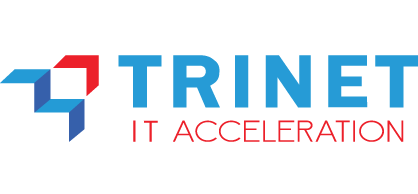Tech Innovation > Security > Security Hardening

Security Hardening
Security Hardening is a strategy for reducing the attack surface by securing devices, operating systems, applications, and networks from exploits. This includes the implementation of best practices, patch management, encryption, and strict access control to ensure systems remain secure and resilient to modern threats.
Without this solution, organizations face the following challenges:
System Vulnerable to Exploitation
Default configurations often contain security holes that can be exploited by hackers.
Lack of Security Standardization
The absence of a uniform hardening policy leads to inconsistencies in system protection.
Difficulty in Complying with Security Regulations
Standards such as ISO 27001, PCI DSS, and NIST require organizations to implement strong security configurations.

Key Features & Capabilities
Security Hardening reduces vulnerabilities by implementing best practices, patching, and access control.
Show Details
a. Endpoint & Server Hardening
- Minimize Attack Surface: Disable unnecessary services & ports to prevent exploits.
- Patch Management & Vulnerability Remediation: Ensure systems are always updated with the latest security patches.
- Application Whitelisting & Execution Control: Allow only trusted applications to run on production systems.
b. Network & Perimeter Security Hardening
- Firewall & Access Control List (ACL) Optimization: Filter malicious traffic & allow only legitimate access.
- Segmentation & Least Privilege Access: Separates tissues based on sensitivity level to prevent lateral movement.
- Zero Trust Network Implementation: Ensure that all access is authenticated & authorized based on minimum requirements.
Compliance-Ready Security Configurations
- CIS Benchmarks & NIST Framework Implementation: Adopt global security standards for hardening operating systems & applications.
- Automated Configuration Audits & Policy Enforcement: Identifies non-compliances with security policies & fixes them automatically.
- Secure Backup & Configuration Management: Ensure security configurations can be restored after a security incident or accidental change.

Business Benefits
Security Hardening strengthens systems by reducing vulnerabilities and ensuring robust protection.
Show Details
a. Mitigating the Risk of Cyber Attacks & Zero-Day Exploits
- Securing systems with best practice-based hardening policies.
- Prevent misconfiguration-based attacks & unauthorized access.
b. Improving Operational Efficiency & IT Security
- Reduce security incidents with tighter system configurations.
- Avoid downtime due to exploits with a solid hardening strategy.
c. Ensuring Compliance with Security Regulations & Easier Audits
- Compliant with ISO 27001, NIST, PCI DSS, and GDPR standards with security configurations optimal.
- Provides logging & forensic analysis for compliance audits.
d. Lower Security Costs & Infrastructure Management Complexity
- Reduce the need for additional security devices by optimizing system configurations.
- Increase IT team efficiency with configuration automation & security policies.

Use Cases
Security Hardening offers proactive system protection and vulnerability reduction across sectors.
Show Details
a. Banking & Finance
-
Prevent data theft & fraud attacks with strict system security policies.
b. Health Services
-
Securing electronic medical records (EMR) systems & hospital IT infrastructure.
c. E-Commerce & Retail
-
Protect customer transaction information from misconfiguration-based exploits.
d. Government & Critical Infrastructure
-
Prevent attacks on strategic systems with compliance-based hardening.

How We Can Help
As vendor agnostic system integrator, PT Trinet Prima Solusi helps organizations in:
Show Details
a. Security Hardening Assessment & Risk Analysis
-
Analyze security configurations & provide recommendations for improvement.
b. Automated System Hardening & Compliance Enforcement
-
Implementing hardening based on a global security framework.
c. Continuous Security Monitoring & Threat Detection
-
SLA based monitoring service with 24/7 SOC.
d. Cybersecurity Awareness & IT Governance Training
-
Provide education to IT teams about best practices in system hardening.
Contact our experts for further information
CONTACT US












